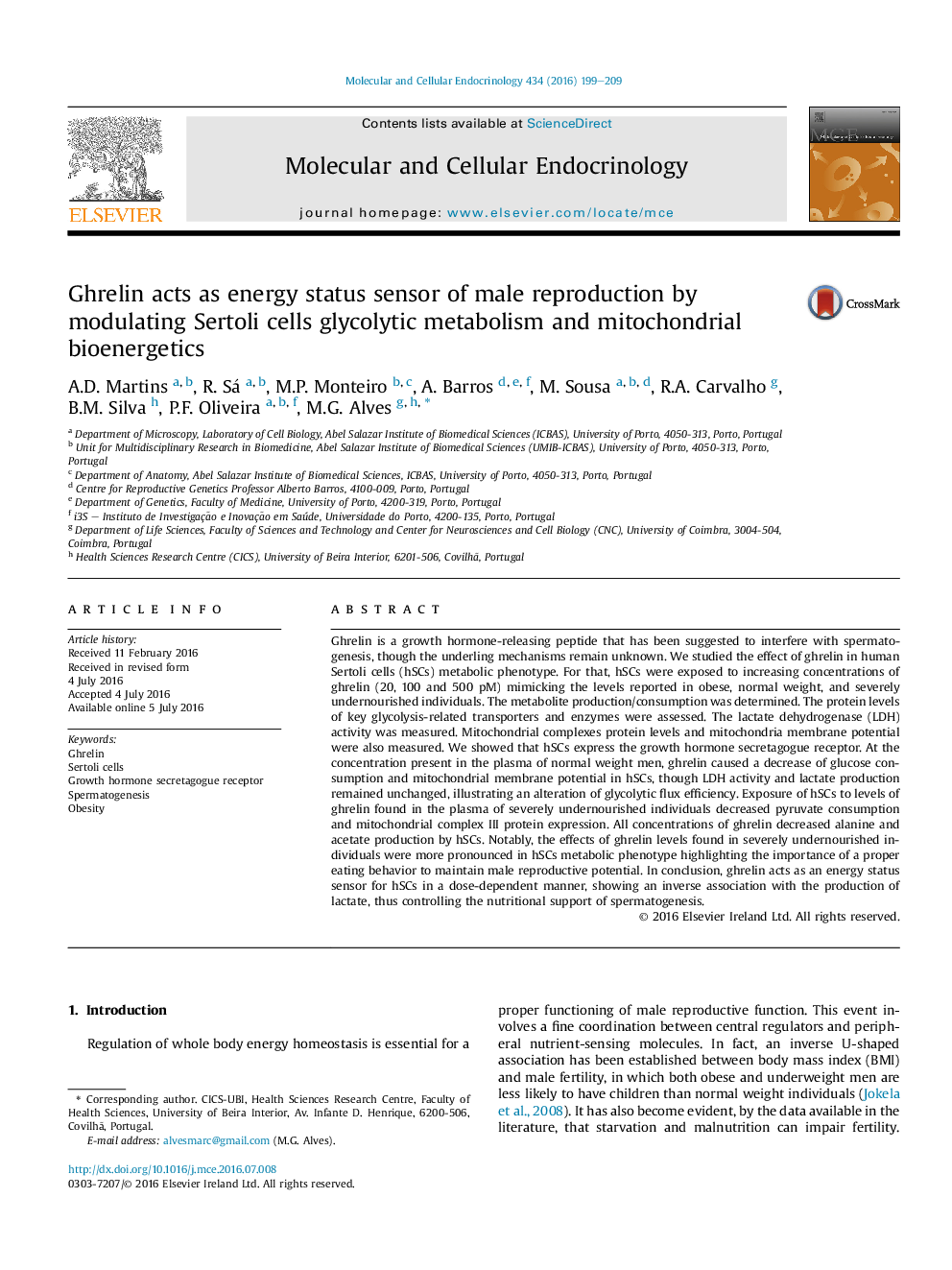| کد مقاله | کد نشریه | سال انتشار | مقاله انگلیسی | نسخه تمام متن |
|---|---|---|---|---|
| 2195509 | 1550845 | 2016 | 11 صفحه PDF | دانلود رایگان |

• Human Sertoli cells (hSCs) express the growth hormone secretagogue receptor.
• Exposure to ghrelin levels is inversely associated with lactate production by hSCs.
• Ghrelin levels of severely undernourished individuals had more pronounced effects.
• Ghrelin regulates energy status of hSCs cells in a dose-dependent manner.
Ghrelin is a growth hormone-releasing peptide that has been suggested to interfere with spermatogenesis, though the underling mechanisms remain unknown. We studied the effect of ghrelin in human Sertoli cells (hSCs) metabolic phenotype. For that, hSCs were exposed to increasing concentrations of ghrelin (20, 100 and 500 pM) mimicking the levels reported in obese, normal weight, and severely undernourished individuals. The metabolite production/consumption was determined. The protein levels of key glycolysis-related transporters and enzymes were assessed. The lactate dehydrogenase (LDH) activity was measured. Mitochondrial complexes protein levels and mitochondria membrane potential were also measured. We showed that hSCs express the growth hormone secretagogue receptor. At the concentration present in the plasma of normal weight men, ghrelin caused a decrease of glucose consumption and mitochondrial membrane potential in hSCs, though LDH activity and lactate production remained unchanged, illustrating an alteration of glycolytic flux efficiency. Exposure of hSCs to levels of ghrelin found in the plasma of severely undernourished individuals decreased pyruvate consumption and mitochondrial complex III protein expression. All concentrations of ghrelin decreased alanine and acetate production by hSCs. Notably, the effects of ghrelin levels found in severely undernourished individuals were more pronounced in hSCs metabolic phenotype highlighting the importance of a proper eating behavior to maintain male reproductive potential. In conclusion, ghrelin acts as an energy status sensor for hSCs in a dose-dependent manner, showing an inverse association with the production of lactate, thus controlling the nutritional support of spermatogenesis.
Figure optionsDownload high-quality image (384 K)Download as PowerPoint slide
Journal: Molecular and Cellular Endocrinology - Volume 434, 15 October 2016, Pages 199–209